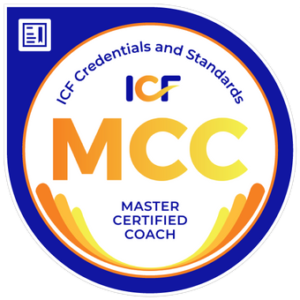
What are your primary roles as you lead your virtual team? How would your team express how they want you to lead them?
Leading and managing a remote workforce requires different skills and a different implementation of your current skills and strengths to be equally as effective with a virtual staff.
What I’ve been teaching with business leaders and organizations are the 3 Roles of Leading with Virtual Intelligence: communication, coaching, and collaboration. Let’s dive in and see how to use our strengths within the context of these roles.
1. Communicator
Whether Communication® is one of your top strengths or not, having a virtual team creates a demand to become a better communicator. Remember communication is verbal with tone and voice fluctuation, non-verbal with eye contact, hand gestures, and proximity. Now there is another element of technology involved in our communication. Video, poor WiFi connection, speaker and mute problems, texting, slacking, which can distort and complicate virtual communication cues.
Which of your top 10 strengths will you be intentional with for both formal and informal moments of interacting with your team?
Score yourself on a scale of 1 (low) – 4 (high) on each of the communication skills below.
Check in formally and informally with my team regularly?
Make expectations specific and clear?
I use all virtual communications modes available to me effectively?
Self aware of my tone, inflection, facial expressions, eye contact, and pacing?
Focus intently without multi-tasking while communicating?
Summarize content, speak concisely, and clearly?
Listen deeply for patterns, unspoken concerns, and underlying meaning?
Consider my words, with the strengths, values, and culture of my receiver?
2. Coach
Although you might not be a professional coach with a designation after your name, you are the team leader, or coach, of your remote team. Being yourself and relying on your top strengths can help you coach your team, and enable them to level up, bringing their “A game” to the table.
Again score yourself on a scale of 1-4 on the items below related to skills in coaching.
Ask open-ended, powerful questions versus bossing with command and control?
Avoid defensiveness when my ideas are challenged or not agreed with?
Focus on the process of personal development as well as performance results?
Empower ownership, goal development, action planning, and accountability?
Use strengths-based approaches and questions rather than focus on weaknesses?
If you’re a Relator®, model authentic coaching conversations. If you’re a Maximizer®, ask permission to share your insights to polish. If you have high Positivity®, encourage them in their skills and recognize them for a job well done. If Discipline® is your strength, be willing to guide, and share resources to establish routines that help others become more productive.
Equally as important is your role of connecting your team to each other.
3. Collaborator
Collaborating with a remote workforce can be challenging; the sense of camaraderie and connection are much harder. However, there are many tech tools and coaching skills that make collaboration possible. And, because your team is experiencing better work-life balance, they can be more apt to collaborate and connect as themselves, rather than solely in their professional role.
Rate yourself on the scale of 1-4 on the collaboration skills below.
Ask the team to share strengths-based recognition in team meetings?
Use ice-breakers in team meetings to get to know one another more deeply?
Make time for peer accountability meetings?
Build deeper trust and interdependence with strengths-based projects?
Create opportunities for off-site team building experiences?
Why not invite one of your team members with high WOO® to help model social connection or someone with Connectedness® to build more collaboration.
Which of these 3 roles do you need to improve the most? Please share your take away’s below.
If you’re challenged to communicate virtually, coach virtually, or inspire virtual collaboration, you can find resources here that will equip you to lead your virtual team.





